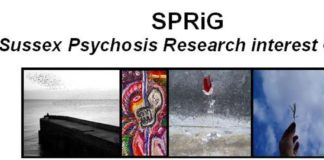Tag: first episode
How Exercise Can Help With First Episode Psychosis
New study examines the experiences of people utilizing an exercise program following a first-episode psychosis.
Study Finds First-Episode Psychosis Patients Fare Better with Vitamin D
Researchers examine the relationship between vitamin D and clinical and cognitive symptoms in first-episode psychosis.
Study Examines US Mortality Rates for First-Episode Psychosis
At 12 months, rates of mortality for those diagnosed with first-episode psychosis are 24 times higher than the general population.
Social Recovery Therapy for First Episode Psychosis
Social Recovery Therapy shows promising results for individuals who experience first-episode psychosis.
New Review Suggests Higher Recovery and Remission Rates for Psychosis
Meta-analysis gives updated recovery and remission rates for persons identified as having a first-episode psychosis and those diagnosed with schizophrenia.
Half of First-Episode Patients Respond to Antipsychotics
No placebo controlled trials provide evidence of antipsychotics in first-episode psychosis.
Study Explores Cognitive Effects of Antipsychotics
Reduced usage of antipsychotics in first-episode psychosis was associated with improved executive functioning.
Madness and the Family, Part III: Practical Methods for Transforming Troubled...
We are profoundly social beings living not as isolated individuals but as integral members of interdependent social systems—our nuclear family system, and the broader social systems of extended family, peers, our community and the broader society. Therefore, psychosis and other forms of human distress often deemed “mental illness” are best seen not so much as something intrinsically “wrong” or “diseased” within the particular individual who is most exhibiting that distress, but rather as systemic problems that are merely being channeled through this individual.
NIMH: RAISE Study to Have Immediate Clinical Impact
In a Science Update, the National Institute of Mental Health (NIMH) reports that Medicaid services is already taking steps to implement “coordinated specialty care” (CSC) in response to the RAISE study released last week. “The RAISE initiative has shown that coordinated specialty care for first episode psychosis is better than the standard care offered in community clinics. However, covering the cost of coordinated specialty care can be challenging. When Medicaid agrees to pay for effective treatment programs, patients in need benefit.”
RAISE Study Out Of Sync With Media Reports
Writing on his 1 Boring Old Man blog, Dr. Mickey Nardo reflects on the media frenzy around the RAISE study and asks why the prescription data has not been released. He adds skepticism about the political motives of the potentially overblown results, which he sees as a clear push for increased mental health funding.
















